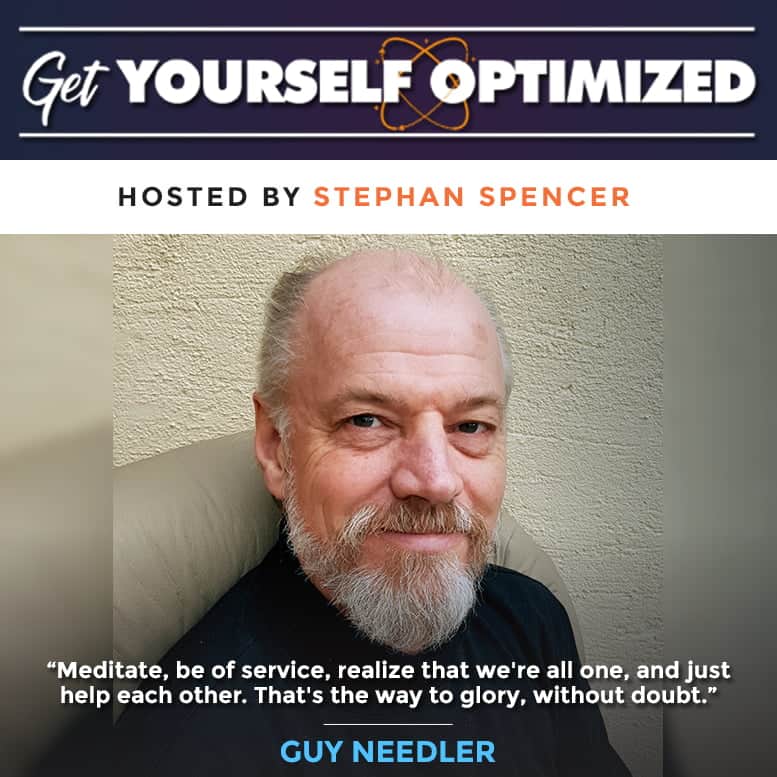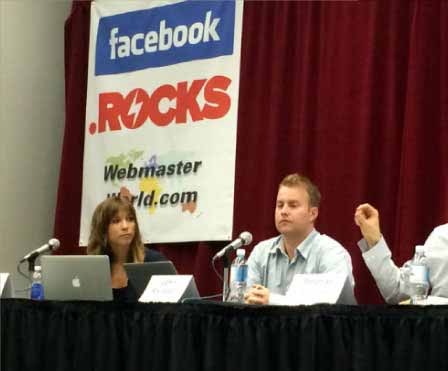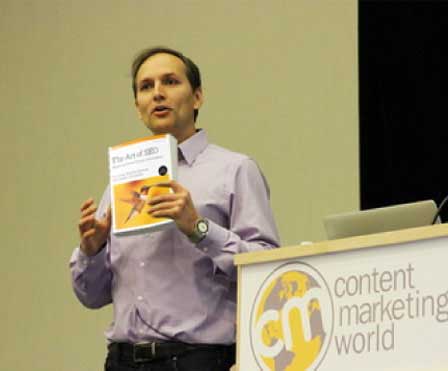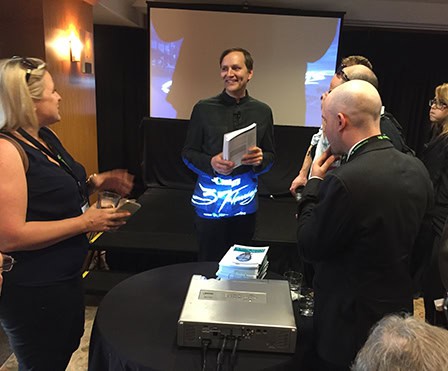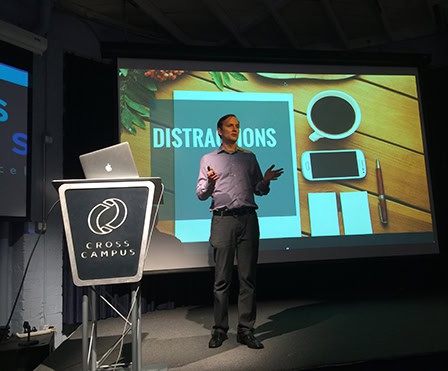Transcript
Hello, and welcome to Get Yourself Optimized! I’m your host, Stephan Spencer. Today, we have Margaret Wright with us. I met her through the Tony Robbins World. I’ve been a big fan of Tony Robbins for years now-at least like, six years-and so is Margaret. We met through mutual friends who are platinum partners and just hit it off. She’s such an amazing person and just a powerhouse at flipping houses at real estate, in general, and at business. We’re going to focus on house flipping, but we’ll cover some different areas of life and business, we’ll probably talk about Tony Robbins a bit, and who knows what directions we’ll head in!
Let me first give you a bit of a background on Margaret. She’s flipped over a hundred houses over the last ten years, most of those over the last five years. She is working on a book and is in the editing stages now so I’m looking forward to seeing that soon. Maybe next year. It’s called Own It: A Girl’s Guide to Building Wealth in Real Estate. She also has an information product kind of training program online that she just recently launched about, I think, eight weeks ago so we’ll talk about that as well. She’s is also working on a TV show that, hopefully, we’ll end up seeing on some network somewhere so that’s all kind of under wraps right now, but there’s some exciting TV stuff that’s in the works.

She, out of just drive and necessity, switched her degree program, back when she was going to college, from psychology to computer science because-she’ll tell you the story-but she just had a major life shift happened her and she needed to make some adjustments to her life and income in order to prepare for those life changes. She started flipping houses for fun, but it quickly became something that was a money-generator. She doesn’t actually have to work anymore because of all the houses that she’s flipped and now, she has a rental portfolio so with that rental portfolio, she doesn’t have to keep flipping houses, but she loves it and she loves teaching others how to do it so she stays in the game and is always upping her game. She’s motivated by her kids and she’s been inspired by Tony Robbins-Margaret, it’s great to have you! Thanks for joining us!
Thank you, Stephan! It’s a pleasure to be here.
Let’s start by talking about the story of your journey-how you got from going to college and studying psychology to where you’re at now.
Yeah, the college story: what happened is, I just graduated from high school and I was going to a local community college. I didn’t come from a family that had money so it was up to me to put myself through school and when I was 18 years old, I found out that I was pregnant. The first thing I did was, I went to the career center and I looked at what’s the highest paid job right now so what can I do quickly, how can I support this new baby, and I went to a counselor and I said, “Just start by the highest paid jobs!” I want to see what my options are so I looked at the list and it said “IT Systems,” “IT Computer Science,” and this whole list of things, most of which I’ve never heard of, and I didn’t know what IT was, but I ended up switching my degree to what I later found out was information technology. I never owned a computer and I’ve never taken a computer class, but I switched all of my classes and I started taking programming and ended up getting a degree in computer science.
Yeah, because it’s the “it” thing, right?
The “it” thing to do!
That’s awesome! Very pragmatic, but a huge shift!
Oh my gosh! My first class was a C++ class and after the first day, I went home and I just cried and I thought, “Well, this is what I signed up for! I’m going to have to stick with it.” I spent my spare time programming and reading all kinds of bits and bytes and things I’d never heard of before and it worked out. I got a degree in database and data analysis and I actually had a career for a while doing that.
Yeah. I taught myself computer programming when I was a kid. I actually program my own bulletin board system from scratch. I worked all night long over the summer. I also taught myself assembly language, not just basic, but assembly language as a kid so I was programming in hexadecimal and it was just crazy. I was kind of a social misfit!
You’re far more of a geek than I am! I aspired to be that much of a geek, but I was a little bit of a wannabe.
Yeah, well, I mean, there’s a reason why this is called Get Yourself Optimized podcast, right? I’m pretty geeky, but at least I figured out how to not be socially awkward and how to kind of reboot my life and show up powerfully in the world, it was a learning experience. You went through this shift and then you went from computer science to house flipping.
Yeah.
Walk us through that.
The computer science route took me into corporate America, which I was taught to be the be-all and end-all-get a good job, make sure you have benefits, maybe you can get a pension or a 401K, and then you’re going to work for the rest of your life. I got stuck on that track. I was working the corporate job and I had a really nice pay so the counselor was right-these are really well-paid jobs. However, what’s happening is, I was working 10, 12, sometimes 14 hours a day and I wasn’t there to be with my kids-I’ve got three kids now. Somebody else was putting my kids to bed and it was not the life that I wanted. It wasn’t the life that I dreamt of.
Somebody else was putting my kids to bed and it was not the life that I wanted. It wasn’t the life that I dreamt of.
You mentioned that we met through Tony Robbins and when I started studying personal development, I really learned that there is more to life than just paying the bills. There’s more to life than going through the motions. I really started to dream and I thought, “What would I love? What kind of a lifestyle would I absolutely wake up thrilled to be living every single day?” I started to have these visions of: What would it look like not to have to work a job? What would it look like to travel the world? What would it look like to do something that I do for fun and get paid for it? Not this compartmentalized “Here’s my job, here’s what I do for a living,” and then I come home and I have my life.
I started dreaming up what that would look like. I love the flipping shows on TV and I had a little bit of extra money saved up so I decided I was going to find a beat-up old house, I was going to fix it up, and I was going to make it look pretty. It was really fun. My dad helped me with it. I mostly didn’t have any idea what I was doing, but I managed to find the information that I needed when I needed it. I made about $20,000 on my first house so I thought, “Wow!” There was a time when making $20,000 a year for me was a really big deal and so I just did one at a time. In the beginning, which was 10-12 years ago, I would do one house a year and then I started doing two houses a year and then it got to the place where I was flipping and I was making more money flipping houses than my job so that really got me excited about the potential for real estate.
Right, and now, you’re teaching others how to do the same as what you’ve done and avoid some of the mistakes and the length of time it takes to learn it on your own. What are some of the things that are kind of painful lessons that you want your students to avoid?
There’s so many! I think some of the most painful lessons I want people to avoid and I’ll say, my students, the biggest lesson is just do it. For some people, the painful lesson is, they wait, or they think that they’re not going to be successful so they sit on the sidelines and they watch and they see other people become successful. For me, again, I started off very slow in the business. I look back and I think, “My gosh! What if I had sped that up?” If the speed of implementation was even 50% faster, it would have made all the difference in raising my kids in the lifestyle that I was able to have with them when they were younger. My oldest son just turned 21 last week and there was a lot of his growing up that I have spent working so I look at these women who come to me and they say, “Hey, I see what you have and I want to do this,” and my biggest advice for them is, “Okay, when would ‘now’-like, right now-be a good time? Let’s get started!”

I like the use of NLP in that sentence!
It’s something that can be scary-just like anything in life. If we haven’t done it before, it can be scary, but if somebody else has done it, all we need is a little coaching. All we need is a little, “Hey, you know, right foot in front of the left, step by step by step, I’ll hold your hand, and I’ll coach you through it!” There’s a piece of it-there’s such a piece of flipping houses that psychological. There are mechanics-of course, there are mechanics-that are pretty easy to learn. It’s the psychology of, “Can I do this?”, and for a lot of women, “Do I deserve this? Can I do this on my own without a man?” When I’m working with women, the psychology is a huge piece of what I work with them on.
Right. What would be some of the workarounds if somebody feels like, “I can’t do this by myself!” or “I don’t have the funds,” “I don’t have the know-how,” “I am not good with my hands,” “I’m not handy,” or whatever other objections that they might come up with? What are the workarounds for each of those?
You got it, right? Those are exactly the objections that I hear. The number one objection is “I don’t have the money.” For me, I was very much corporate-minded-you show up and you get a paycheck for the hours that you worked-and I wasn’t investor-minded. What most people don’t realize is that, money wants to grow. If you look at the psychology of money, money wants to expand and it wants to multiply. Investors understand that. Investors have money. They want their money to multiply. They need people-like women who are flipping homes who know how to multiply money-to take and be a good steward of their money so I didn’t understand this in the beginning. I thought that I was going out there and I was begging for money or I was asking for money, as opposed to giving somebody an opportunity to get a great return on their investment.
If you look at the psychology of money, money wants to expand and multiply.
Again, I close to the psychology of, when you think that you don’t have money-yeah, of course, you don’t have money-you’re not an investor yet, but when you realize that there are people-there are, literally, tens of millions of dollars in people’s pockets right now-who would love to take that money and give it to somebody to invest in real estate. There are two groups of people: there are people who say, “I don’t have money, but I want to start investing in real estate,” and there’s the people who say, “I got all this money and I don’t know how to start investing in real estate,” so all we need to do is pair those people up for the people who want to learn how to flip houses understand and for me to hook them up with those people. I have a big network of people with money, I have a big network of people who want to learn how to flip houses, and it’s just a matching of those two people together. That’s number one-it’s “Hey, I don’t have enough money to get started.” Well, good. You don’t need it.
And what is a great return? So, you’re going to be a great steward for people’s money who have money already-they’re investors looking for an opportunity-you flip houses, and you bring on investors-what sort of return is a great return?
Depending on how we structure a deal. On any given flip, I expect to make between 20-50%. I would say 20% is very conservative-you better be making 20% or you shouldn’t be flipping that house-but I’ve made up to 50-60% on a flip so as an investor, usually what I do, if I’m working with a hard money investor, let’s say, I’ll give them 12-18%, which is a great return for somebody to just stick their money in my pocket for a little bit and I give it back to them with a return. There’s also a way that you could partner with somebody into a 50-50 so they’re taking a little bit more of the risk, but again, they might be making 15, 20, or 30% return on their money without doing anything.
There’s a lot of ways to structure it. It’s being creative with the level of involvement that the money person wants to have in the deal and the experience that the flipper has. They might need to give up more-if somebody is brand new flipping a house and they can make, let’s say 5%, but they’re getting the experience, it’s worth it. It’s worth putting the time and the energy into learning how to do it-same with me. In the beginning, I didn’t know what I was doing so I would have to expect to give the investor more money because their money was worth more than my experience. Now, my experience is worth so much that I don’t have to pay so much for the money that I’m getting because it’s a pretty guaranteed thing for the investor-if that makes sense.
Okay, well I got some money in my pocket right now. It’s burning a hole in the pocket so we’ll talk afterwards.
Case in point!
Yeah! Okay, what about the argument “I’m not handy!”? Like, I’m not that handy!
I have a rule that if I wouldn’t hire me to do it then I shouldn’t be doing it.
I’m not that handy either. Actually, I was just in my office yesterday and I hung some curtains myself-I should not be allowed to do anything myself in a house-I looked up and I was remembering the day that I tried to hang them. I had this little pink drill and there are like, four holes just in one side of a curtain trying to hang this curtain so my answer is, you don’t have to be handy. Frankly, it’s better if you’re not because you’re not going to try to do somebody else’s job. If you’re a flip chick-if you’re coming into the community and you’re learning how to flip houses, you are learning to be an investor. You’re not learning to be a painter, you’re not learning to be an electrician, but those people-those professionals-do what they do best. I have a rule that if I wouldn’t hire me to do it then I shouldn’t be doing it. If I wouldn’t hire me to do the plumbing then I better not know how to do plumbing or try to know how to do the plumbing or think that I need to know how to do the plumbing.
Got it! What are some of the other objections that people have?
A lot of the objections are about time. They say, “I’m so busy that how could I possibly add more to my plate?” We all have 24 hours in a day, we’ve all got the same amount of time, and I think women, especially-we get caught up in not managing our time very well. For example, I don’t have a television in my house and I sit around sometimes with other moms and they talk about the TV shows that they’re watching or things that they saw on the news and I think, “Wow, if I had spent those extra hours doing something-and I’ll call it-mindless, then yeah, I don’t think I would be as successful as I am right now.” When people say, “I don’t have the time,” let’s look at what you’re doing with your time that you’re calling more important than having a life of your dreams and learning a new skill like learning a language. There’s always time to do what we prioritize and it’s just a matter of really being honest with ourselves about what we’re doing with our time. That’s another thing I coach a lot of women on. Let’s take a step back and see what your life really looks like, what you want it to look like, and how do we close the gap between those two scenarios.
Yeah, that’s so important. I just recently gave up Netflix-well, I and my fiancée, Orion, did the same together. It was a joint decision. No more Netflix. We had already chosen not to have cable or satellite so the TV was only plugged into the DVD player, which also had Netflix capability because it has a Blu-ray player. We decided no more Netflix so now, all we have is the ability to watch DVDs.
Yeah, and there’s nothing wrong with sitting down, relaxing, and watching a movie if it’s deliberate and if you’ve chosen it, but if it’s by default…
Yeah, you schedule it.
Yeah, you schedule it. You don’t come home and think, “What do I do? I don’t know what to do, I don’t know to make for dinner-should I do this?” You’re thinking so much and instead of just acting out a well-laid plan, “Hey, it’s Saturday night. We’ve decided to watch a movie,” instead of, “Hey, it’s Tuesday. I don’t know what to do. Let’s go sit mindless in front of the TV!”
Yeah. Just being intentional. That’s so important.
Absolutely! That’s why I love you so much, Stephan!
It’s a journey. Every time I feel like I’m masterful, I realize that, “Wait a second, that’s my ego kicking in and I got a long way left on this journey because my ego is not supposed to be in charge here!” I want to learn more about how this process works because I’ve been interested in house flips and I have never had a successful house flip. I started on the process back in 2007, which is really a bad time to be doing that-2007 and 2008, yeah. We bought two houses; one to live in-this was in my previous marriage-and one to either flip or turn into a rental property. We bought this kind of a starter house that needed a lot of renovation.
We hired somebody that we found through local friends and this guy redid the cabinetry, flooring, bathrooms, the countertops, the tearing out the carpets, making the wood flooring underneath look all nice, adding molding, new chandeliers, and all that sort of stuff. Because of the divorce, which I wasn’t planning on at the time but ended up being a huge gift, in retrospect, because of that, my ex moved into that house, I stayed in the big house, and that didn’t end up being a flip. We had a renter for a couple of months and the woman just disappeared on us.
Okay.
So weird! You have somebody mail the keys back to you and just disappear into the ether. It was just the weirdest thing!
I wish I could tell you that’s never happened. I wish I could tell you that it doesn’t happen to me on a monthly basis, but that’s definitely part of the game.
Yeah.
You need multiple exit strategy when you’re investing in real estate.
Well, to give you as much as I can give you in the time that we have in the podcast, I love that the strategy that you had going into it of multiple exits-so, you need multiple exit strategy when you’re investing in real estate. A lot of people say, “Oh my gosh! I found this million-dollar house and I can make a half-million dollars on it!” but guess what? You could lose everything that you have. I recommend people go in with a very starter home-a lower-middle class-type of a home that, as a backup, even if you can’t flip it and sell it, you can always rent it out. That’s one thing that you did that was super smart. Your scenario was a little bit different and like you said, it actually worked out for the best, but possibly, that could have been a great rental or a great flip.
I’m in the Midwest so it’s pretty reasonable to get $100,000 to $150,000 house and when I’m looking at fixing it up, I’m very conservative with, “Let me look at everything that could possibly be wrong with this house,” run the numbers, and “Is there still room for profit?” Now, if I have to sit on it for six months and nobody buys it and I have to turn it into a rental-can I cover everything that I’ve got into it? Can I get out of it by turning it into cash flow? I think one of the biggest things is, when you first look at an investment, do you have multiple exit strategies? That’s a huge recommendation that I have for being successful because you’re going to lose the game before you even get into it if you start with the wrong property-flipping. Huge risk, if you don’t know what you’re doing. I will say too that one of the biggest mistakes that I see people making is, they forget that it’s not they’re house. They get all excited and they think, “Well, these are the cabinets I would love and this is the carpeting I would love,” as opposed to, “This is business and I’m looking at bottom line profit at the end of the day.”
You talked about chandeliers and light fixtures-that’s a good example. There are “builders packs” of most of what I put into a house and a lot of times, especially with women-you know, we love pretty things-we’ll go out and start to do the designing of a bathroom, let’s say, and go, “No, I want to do this vanity and I want to do this light fixture.” Well, you could, literally, double the price just by not picking the standard thing and picking something that you think is so pretty that’s going to sell the house. It’s not about what you think is pretty, it’s what is going to be the best financial return on this opportunity. Remember that it’s a business first. It’s not “It’s pretty!” or “I’m decorating a house for myself,” it’s a business.
It’s not about what you think is pretty, it’s what is going to be the best financial return on this opportunity. Click To TweetRight, and as part of that getting the best price possible for these things, it’s buying in bulk the chandeliers, the refrigerators, or what-have-you, instead of just one at a time, or even negotiating if you do have to buy one at a time. Some places, I don’t know, if Lowe’s or Home Depot or whatever are negotiable, but there are some places that you can negotiate with to get a better deal than the sticker price.
Yeah, absolutely. For example, at Home Depot, you can go open up a pro account. I have a managed account at Home Depot. I call them and I say that I need my appliance package. I’ve negotiated the prices and I’m going to get the best price that they would ever offer and they just send it out and they install it so absolutely, there’s a huge amount of negotiation that has to go in. You’re not a retailer. You’re not going out there buying it as a retail customer. You’re in business. Again, you’re going to try to get wholesale prices on everything that you can. For me, too. This is something that I see a lot of flippers do: they go in and they say, “Okay, gut the house!” Well, no. You don’t have to gut the house. Let’s look at-I call it-“the minimum effective dose,” so if I’ve got a headache and taking two aspirins versus five aspirins, if I only need two aspirins to get rid of the headache, I’m not going to take five aspirins for that headache. Same thing-if I can get away with keeping the light fixtures and spray-painting them and putting them back up, I’m going to do that. People think, “Oh, well, you’re nickel and diming the project.” No, I’m looking at the bottom line-every penny counts.
Yup. Makes a lot of sense!
The time that you sit on a deal: having a project completed in four weeks versus four months-that could eat up all of your profit. I get so irritated when I’ve got a crew that says, “Oh, I work from six in the morning until two o’clock in the afternoon,” and I say, “Well, that’s fine, but I’m going to bring a second crew in from two o’clock until ten o’clock,” because there’s no reason not to have people working around the clock on your house because time is money. It’s really tough when you hire one contractor who’s supposed to do everything, but also going to prolong your project and that’s going to cost you money.
How does that cost so much money to make it four weeks versus four months if the time that you have to turn that money around-is the interest rate that you’re borrowing the money from the hard money lender, is that the big factor?
That’s a huge factor. Actually, I just had this conversation with one of my students. She has an offer on a house. It’s been on the market longer than she had hoped, she has an offer on the house, and her husband wanted her to hold onto it. The cost of the holding-you know, you’re paying the insurance, and if you’ve got a hard money or a loan or whatever, the cost of the money is there and you’re paying all the utilities, but the most important thing that a lot of times people aren’t considering is, if you have a house that’s finished in four weeks versus four months, you could have flipped an entire other house in that time period so it’s not only the cost of not finishing the house on time-all of the holding cost-if you made $30,000 on that house, if you had done it in half the time, you could do two houses, and you could make $60,000.
There’s no reason not to have people working around the clock on your house because time is money.
Right, because while you’re busy working on one house, you don’t really have the attention to put towards another house at the same time and you also have that money tied up.
Right, and it’s usually about the money. It’s usually-I’m sitting here on half a million dollars’ worth of-and a lot of people do more than one house at a time so maybe you do have two or three going, but if you prolong it, you could have done twice as many houses in that time period with that same knot of money.
Got it! How many houses do you have, typically, going on at the same time? Is it three or two or four?
I like to have two or three that I’m actively working on meaning, they’re still in the construction phase. There’s always going to be a house under contract that I’m waiting to close, or a house that’s finished and sold, but also waiting to close. Last year, I had seven actively flipping at one time and it was not fun. I like to be hands-on but not as if I’m there painting, hammering, and nailing, but I like to know what’s going on. I like to be able to stop by the projects and I like to keep in touch with all the different contractors, but when I had seven houses going on, some of them were about an hour and a half away from each other so I couldn’t comfortably keep my eye on things. What happened is exactly what I teach people not to do: the project started taking longer. I, not making sure that the guys were showing up every day meant that the project was prolonged so I needed to take my own advice. For me, with the way my company is set-up, which is, I’m still very hands-on and involved, seven was too many so I like to do two or three at a time.
Got it. These are all in the same geographical area because you need to be able to travel to them.
Yeah, I also invest-I can be the investor sometimes for people-and so, I’ve done some out of the area where I have either a student or another experienced flipper where I come in as the money partner so I might have others going on, but if I’m working on it myself, two or three. I like to do it in the local area so for me, I’m in the Midwest so I do them in Illinois, Wisconsin, and in this area here.
Right. Mostly, the Chicago areas since that’s where you’re based.
Yeah, mostly Chicago area. There are some good deals here.
Yup, and how do you find these great deals because there are some list of flips? Do you go to sheriff’s sale or auctions? Do you go to a database of foreclosures? Do you talk to the banks? What do you do?
I’ve done all of those. I guess I’ve gotten a little bit, if I can use the word lazy, although that might not be the right word. I don’t want to go to the auctions anymore. I don’t want to go sit on the steps for a sheriff’s sale. I don’t want to go driving around looking for empty houses. I have a few wholesalers that I work with that they go out and they do that and I give them either commission or they have a flat rate for finding the properties for me. I’ll have wholesalers sending me lists and lists of properties and then I vet them and I make sure that they’re going to be a good deal and I buy them to the wholesaler or I have a lot of realtors who know what I’m looking for in different areas and as soon as the house gets listed as a foreclosure, it comes to me. You can get really great deals at auction-certainly, I could be getting better deals if I was going to the auctions every week and perusing the auction sites, but for me and my lifestyle, I would prefer somebody else do that and give them a piece of the pie so that I can travel, spend time with my kids, and do the things that I love to do.
Right, but if you’re dealing with the realtor, they’re coming to you with a deal. They’ve got to get their 6%.
When I buy it, they’re getting it from the seller.
Doesn’t that come off from the top, anyway, because they have to bake that into the selling price?
I don’t want to spend the time selling things by owner, so I use a realtor.
Right. Anything that’s listed on the M.L.S., they’re going to get whatever percentage they’re going to get regardless. It doesn’t come out of my pocket. When I sell it, again, I don’t want to spend the time selling things by owner so I use a realtor. We’ve negotiated that, everything’s negotiable so I give my realtor 4.25%, but he’s getting houses listed left and right from me because it’s the volume, and I’m so happy to give him 4.25% so I don’t have to think about it after I’m done with it. And then he calls me up and he says, “Hey, we got an offer!” and I negotiate and get every penny out of it that I can and then we close on it and move on to the next one.
Yup! It’s like a well-oiled machine.
It is!
Do you have houses where they are just almost no work and it’s just essentially staging and then you can sell it?
Most of my houses and maybe, I’m a glutton for punishment, but I walk into a house and I like to see a lot of potential for profit so most of my houses have mold, have water damage, have fire damage, and have been sitting empty for three years. Most of my houses that are pretty got rehabbed. I have only done a handful that just need to be spruced up and have the walls painted. Most of mine are pretty extensive rehabs.
Right, but for pretty much anybody who’s going to be selling a house, they need to look into, at least, staging it so that they could get top dollar for it.
Yes, absolutely!
What are some of the go-ahead.
I was going to say that people who are not staging a house, I think that’s one of the biggest mistakes. Whether you’re selling your own house or you’re flipping houses, I think there’s something about walking into an empty house. If you’re a buyer-first of all, it doesn’t feel very welcoming and it doesn’t feel very homey. There’s also something that says, “Hey, I’m desperate because I’m already out of here and I’m probably making payments on the side.” When people see an empty house, they think that they’ve got more leverage to be able to make a low-ball offer. I always stage my houses and I stage them really nicely. I used to hire a staging company, but I have, over the years, gone through garage sales, flea markets, furniture stores that are clearance rack, so I’ve acquired pretty much three or four houses full of staging furniture that I just rotate to all the different houses that I have. I swear, it makes a world of difference to see the house before it staged and after. I mean, easily it’s $10,000 of listing price difference.
Yeah, it’s so critical. What are some of the biggest tips for properly staging a house?
I think the biggest thing is to make it welcoming so people can come in, sit down, and imagine that it’s their house. Very neutral colors-we always do the walls in a really neutral, kind of greyish-beige color, and then we’ll pop a little bit of color in with the pillows. I have a bunch of bright orange colors or yellows that are obnoxious and are going to scare people away. It’s funny-people who don’t have vision, they walk into a house and they won’t buy a house because they don’t like the color of the bathroom, for example, so you want something that’s going to be super neutral. When I’m setting up the staging in the kitchen, I’ll have it set up so it looks like, “Hey, here’s where your breakfast is going to be,” and I’ll have a couple of coffee cups set up and the creamer so that they really start to envision, “Hey, this is how I’m going to live here!” I’ll have it set up so that if I have an office, you can imagine sitting there and looking out the window. You and I, we don’t have televisions in our house, but I’ll set it up so people can imagine sitting in a room together and watching TV together. It’s really about the experience of, “I could live here.”

Got it! What about baking cookies or having something cooking in the oven or whatever?
That is the best advice! I can promise you I don’t go to every house every time somebody is looking at it and throw cookies in the oven. I wish my realtor did it, but I don’t think he does either. Definitely, the smell of a place is important so you can get little air fresheners that you can have the vanilla. I think vanilla is the best smell to put into a house. It’s the most welcoming and universally-appreciated smell. You can have a little air freshener that just passed every three minutes or something and that’s a really good alternative. Of course, it’s best that you go there and you have fresh, baked cookies! For me, I wish I had-well, actually, I don’t wish I had the time to do that because that’s not what I would do with my time.
You wish you could delegate that!
Yeah, actually, that would be a good thing to delegate then I’d say, “Hey, bring the cookies to my house when you’re done!”
That’s right! How do you find contractors? That was something that I really had a challenge with. We got the most unreliable contractor. He was just like a solo guy.
Yeah.
We didn’t go through a company because it was going to be way more money so we got this guy who just kind of fit us in whenever he wanted and we had lots of run-ins with him because he just leave us hanging for days or even weeks at a time. It was just really ridiculous, but we didn’t know how we would ever find a proper contractor who wouldn’t gouge us.
Yeah. Finding a good contractor is absolutely, to me, the most frustrating part of this business. I can find a good deal on a house and I can go find good staging furniture, but finding the contractors is so frustrating. My number is, you get referrals and not rely on one person to do the whole job. I’m not going to hire somebody who is going to tell me that they’re the best plumber, the best electrician, the best trim carpenter, and they do landscaping. You don’t want to hire a jack-of-all-trades. You want to find the people that are the best at what they do and let them do what they’re the best at. Over the years, I’ve done different things. I have hired individual contractors who are pretty good, but there’s always something that they messed up. There’s always something at the end the day that they weren’t qualified to do or like you said, they’re doing it part-time and you’re not their priority.
Finding a good contractor is absolutely the most frustrating part of this business.
What I like to do you is, I’ll hire somebody who’s a general contractor who understands what needs to get done in each of the different trades, but then I will go out and I will find and get three bids, at least, from each of the trades so for example, I’m going to get three bids from plumbers and they’re going to work with the general contractor. I’ll get three bids from electricians and whoever we pick is going to work with the general contractor. The way I have found them-so number one is, asking for referrals from friends and not “I want your uncle who just graduated from plumbing school,” it’s “Have you needed plumbing worked on your house and did you have somebody do it and how did they do?” so a first-hand referral.
We talked about the Home Depot or Lowe’s or Menards-go to the pro desk and ask for a referral from them because they’re going to know who’s coming in regularly, who’s consistently working, especially who’s working through the winter. If you got guys working through the winter, you know that they’re going to be good because most guys end up with a lull and they don’t have enough work to do in the winter. There’s also websites-you can go to Angie’s List. There are referral websites like that where you can see how they’ve done work with other people. The biggest thing is referrals. Don’t go by somebody’s word, check out their work and talk to a referral who have actually used them is the best thing.
Yeah. That makes sense. Cool! For finding house-flip opportunities, we talked about this a bit already like you use wholesalers, for example, but is part of your program where you’re training all these students how to do house flipping where you provide them opportunities in a list of flips that they could consider-is that something that is included in your training?
We provide the list of who is going to be able to provide those. We don’t provide the actual list of the houses because that really will change from day to day. Again, I want the people who do that and that’s their number one job-the wholesalers who are doing that-I want them out there scouring the land and going street by street and finding the empty houses and going to probate and going to the auctions and then, they compile a list. We help our students find the best wholesalers. We work with people all over the US so my list of people in Chicago is very good, but we help them find the best list in their own backyard. We don’t compile the list. There are some really great websites out there. REI Blackbook is one that I’ve worked with and I think they’re very good and you can find some good resources. All of them, though, are not going to be as good as finding your own team in your own backyard who’s going to make you the priority. You don’t want to be competing with everybody else for one list. You want to create your own team of people who are going to be feeding you and make you the priority. I feel good knowing that my wholesaler is going to send me the best deals and that my realtor is going to send me the best deals so that’s what we teach them. It’s to really create a network of people that are going to all work together and really create good synergy so that they’re all going to be successful together.
You don’t want to be competing with everybody else for one list. You want to create your own team of people who are going to be feeding you and make you the priority.
Yup, great! That sounds like an amazing training program and I’d love for you to share the URL for folks to check it out and consider signing up.
Yeah. We have a website. It’s www.flipchickcoaching.com and you can sign up to watch one of our webinars. We’ve got some blogs and we’ve got a bunch of great information out there. We are so motivated and so passionate about helping women to create wealth through real estate. We’ve seen the devastation of women who can’t support themselves, who are dependent on men, who get stuck in bad relationships, and can’t get out because they don’t have the financial means to become independent so that’s our driving forces to help women to become financially free through real estate. We’ve got some great information out there for you. We cater to women, we love women, and frankly, we think they’re really great at flipping real estate so we love to help them.
Awesome! I know that from our experiences together in Tony Robbins events and so forth that most of us, I would say, who are involved in the Tony Robbins World are very contribution-focused as well as growth-focused and you’re no exception to that. You really want to give back to the world, help people, and provide a helping hand up the ladder so that folks can achieve the kind of success that you have and that’s amazing.
Yeah, thank you.
Thank you so much for sharing your wisdom and experience with us on the show. So with that, again, Margaret-it’s great having you, thank you again. Listeners, I will catch you on the next episode. This has been your host, Stephan Spencer, signing off!
Important Links
- LinkedIn – Margaret Wright
- Own It: A Girl’s Guide to Building Wealth in Real Estate
- Home Depot
- Angie’s List
- REI Blackbook
Checklist of Actionable Takeaways










 About Margaret Wright
About Margaret Wright
I heard Tony Robbins say one time, “If you do what you’ve always done, you’ll get what you’ve always gotten.” After another 80 hour work week, I was certain he was speaking directly to me. I asked myself, would another 80 hours of work this week have gotten me closer to my goal, or further away?
I had three kids at home, who I hadn’t tucked into bed at night for almost a month. My family was my motivation for being successful, but based on where I was spending my time, they were not high on my list of priorities. The concept that I needed a new strategy and not to work harder was a novel idea to me at the time. After all, my dad taught me that you had to work hard for your money, and if it was easy, it was sleezy. But I knew that what I was doing was not sustainable. I finally said “enough is enough”.
The true story is I was not an overnight sensation. I was a teen mom, turned computer geek, turned business owner, turned real estate success story, but I was always an entrepreneur at heart. That’s why my favorite stories from my students are those that were once thought to be impossible; the single mom who puts her kids through college, the wife who is supporting the family after her husband got cancer, the “mature” couple that didn’t think they could ever afford to retire, and they were too old to start a new career. If all I do is inspire others to believe in themselves, to choose never again to be the victim of someone else’s bad decisions, to take their dreams off the shelf and make them a reality, then for me it’s a successful day. My best days are when my message is put into action, and the lives of people are made better.
LOVED THIS EPISODE
Please consider leaving me a review with Apple, Google or Spotify! It'll help folks discover this show and hopefully we can change more lives!
Rate and Review








 About Margaret Wright
About Margaret Wright

